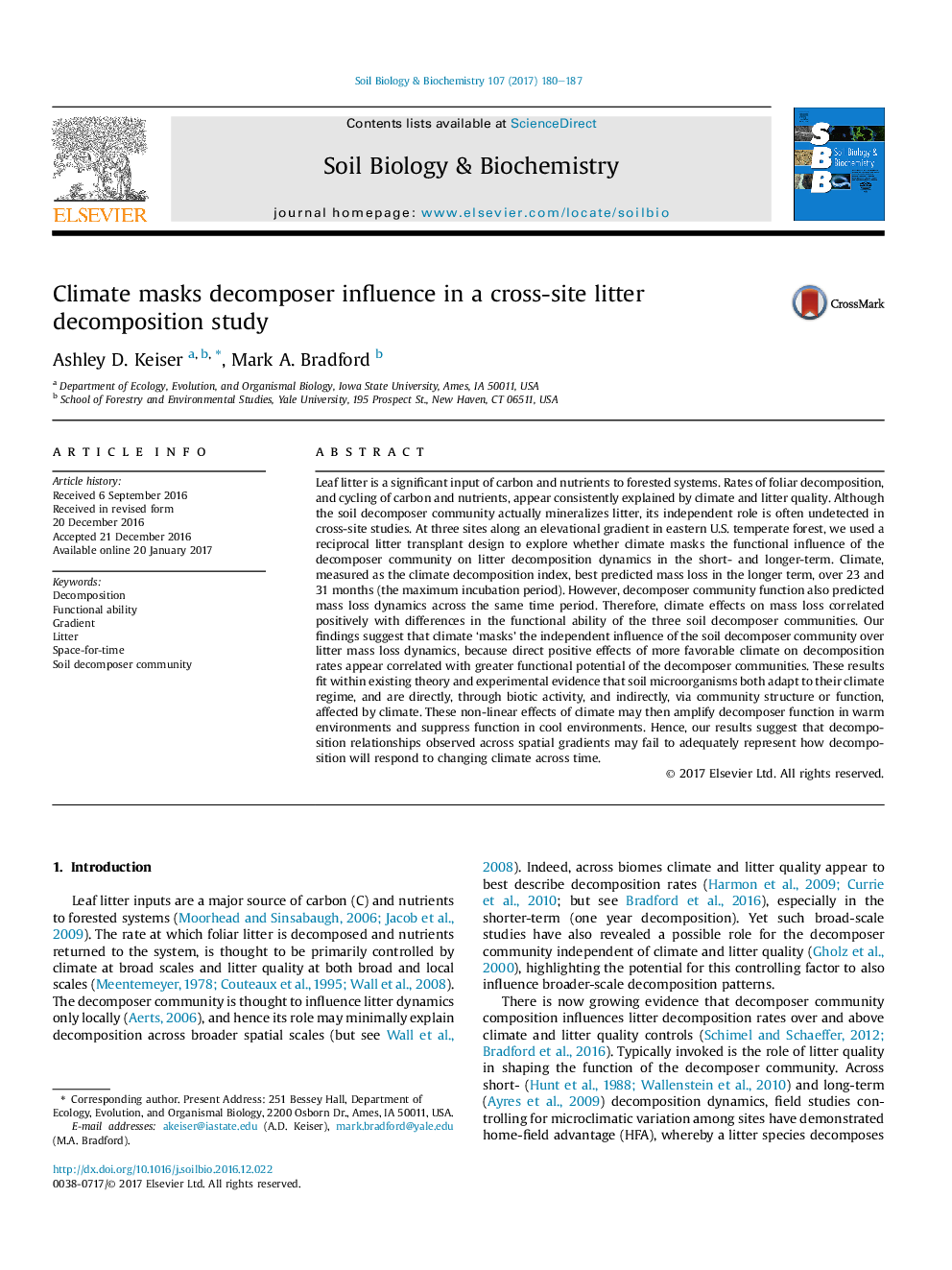| کد مقاله | کد نشریه | سال انتشار | مقاله انگلیسی | نسخه تمام متن |
|---|---|---|---|---|
| 5516428 | 1542577 | 2017 | 8 صفحه PDF | دانلود رایگان |
• Climate best predicts mass loss after the initial decomposition phase.
• Decomposer function correlates positively with climate across the same time period.
• Climate does not appear independent of, and thus masks, the microbial community.
• Need to consider decomposer community effects to reliably model decomposition.
Leaf litter is a significant input of carbon and nutrients to forested systems. Rates of foliar decomposition, and cycling of carbon and nutrients, appear consistently explained by climate and litter quality. Although the soil decomposer community actually mineralizes litter, its independent role is often undetected in cross-site studies. At three sites along an elevational gradient in eastern U.S. temperate forest, we used a reciprocal litter transplant design to explore whether climate masks the functional influence of the decomposer community on litter decomposition dynamics in the short- and longer-term. Climate, measured as the climate decomposition index, best predicted mass loss in the longer term, over 23 and 31 months (the maximum incubation period). However, decomposer community function also predicted mass loss dynamics across the same time period. Therefore, climate effects on mass loss correlated positively with differences in the functional ability of the three soil decomposer communities. Our findings suggest that climate ‘masks’ the independent influence of the soil decomposer community over litter mass loss dynamics, because direct positive effects of more favorable climate on decomposition rates appear correlated with greater functional potential of the decomposer communities. These results fit within existing theory and experimental evidence that soil microorganisms both adapt to their climate regime, and are directly, through biotic activity, and indirectly, via community structure or function, affected by climate. These non-linear effects of climate may then amplify decomposer function in warm environments and suppress function in cool environments. Hence, our results suggest that decomposition relationships observed across spatial gradients may fail to adequately represent how decomposition will respond to changing climate across time.
Journal: Soil Biology and Biochemistry - Volume 107, April 2017, Pages 180–187
